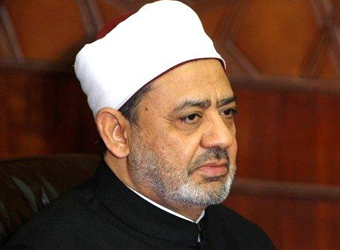Egypt’s Al-Azhar Grand Imam Sheikh Ahmed El-Tayeb slammed on Tuesday what he described as calls for allowing homosexuality as a human right, Al-Ahram Arabic news website reported.
“The calls to allow homosexuality as a human right are blatant and are completely strange to eastern men… who are naturally disgusted with such deviance,” El-Tayeb said.
In September, images were shared on social media showing fans of Lebanese rock bank Mashrou Laila raising the LBGT rainbow flag during a concert by the band in Cairo, causing widespread controversy in Egypt.
Following the incident, at least 50 alleged homosexuals were arrested in the country.
Though Egyptian law does not explicitly criminalise homosexuality, people accused of homosexuality have been convicted on charges such as debauchery and violating public morals.
El-Tayeb made the comments during a speech at the third Dar El-Ifta international conference in Cairo, which is held under the auspices of President Abdel Fattah al-Sisi, with 63 countries participating.
The theme of the three-day conference for 2017 is the “The role of Ifta [religious edicts] in the stability of society.”
The head of Al-Azhar also slammed calls for gender equality in inheritance and allowing non-Muslim men to marry Muslim women.
El-Tayeb also criticised the Convention on the Elimination of all Forms of Discrimination Against Women (CEDAW), which Egypt signed in 1980 without adhering to some of the articles that do not comply with Islamic law, including those on inheritance.
According to Sunni Islamic law, a daughter inherits half that of a son. There are some instances, however, where females can inherit more than other male relatives who are part of her extended family.
Islamic law also prohibits homosexuality as well as marriage between Muslim women and non-Muslim men.
In August, Tunisian President Beji Caid Essebsi announced that his country is looking to allow equal inheritance for men and women as well as marriage between non-Muslim men and Muslim women, which drew sharp criticism from Al-Azhar.
Source: Ahram online


